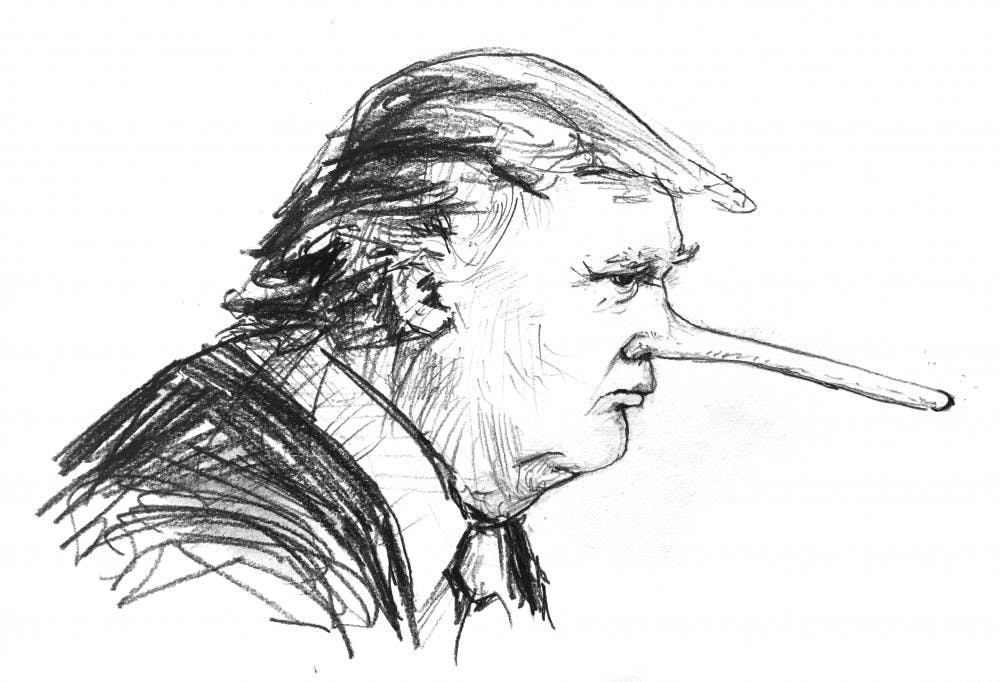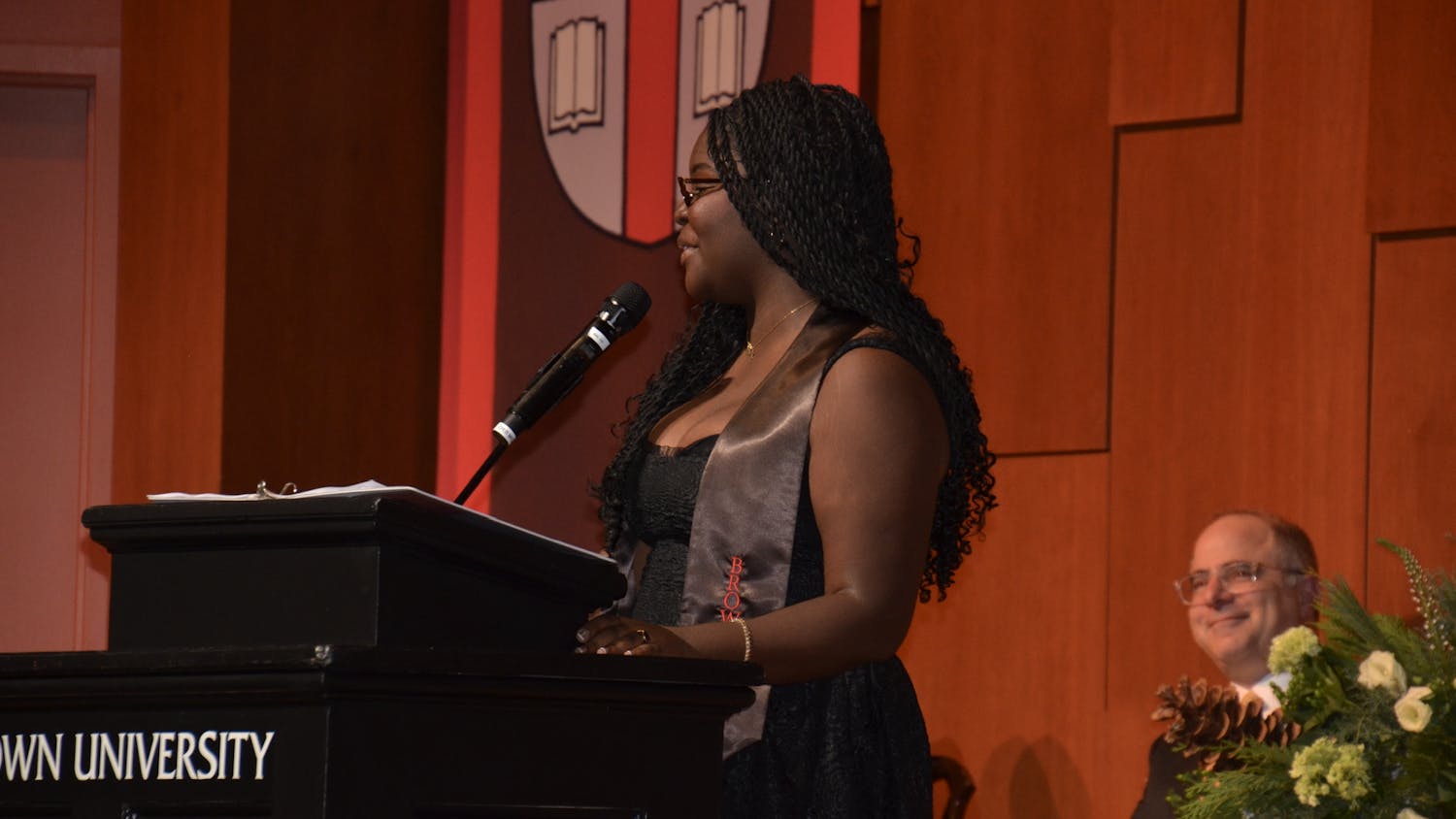Throughout his campaign, President-Elect Donald Trump made many misleading and false statements about science. “It’s almost a political strategy to ignore the facts, make up his own facts and then backtrack on them when it’s expedient,” said Barry Connors, chair and professor of neuroscience, adding that Trump seems to exhibit a “general lack of respect for information, data (and) expertise.”
Trump’s 2012 tweet denouncing climate change as a hoax perpetuated by the Chinese has attracted attention and frustration among scientists. Most people Trump has appointed thus far are climate change deniers, Connors added. But his stances on such issues have also varied.
In 2009, he and other business leaders took out an advertisement in the New York Times asking President Barack Obama to negotiate a strong climate treaty in Copenhagen and to push Congress for binding laws to limit climate change, said Stephen Porder, associate professor of ecology and evolutionary biology and of environment and society. “My personal take is that the President-Elect hasn’t really thought about it and doesn’t really care,” he said. “I hope that I’m wrong.”
As president, Trump will hold sway over science in the United States, affecting issues from funding to public belief in scientific consensus. Though his course in political action regarding science remains to be charted, widespread concerns exist as to his effects on research.
Since he has never served in government before, the public lacks a political record of Trump’s decisions on which expectations can be based, said James Head, professor of earth, environmental and planetary sciences. “We’re entering an era of uncertainty.”
To fund or not to fund
“What we saw during the Bush administration — which I would say is looking very moderate compared to the incoming administration — was a systematic defunding of any sort of climate change research,” Porder said. “While I would hope that would not be the case moving forward, I certainly think that earth and environmental sciences are likely to take the biggest hit.”
If funding decreases, the overhead collected by the University will decrease, and it may have to make up for a budget shortage, Porder said.
Much of the funding for environmental studies comes from the Environmental Protection Agency and the National Aeronautics and Space Administration, said Baylor Fox-Kemper, associate professor of earth, environmental and planetary sciences. “Changes of administration have changed the priorities of those agencies pretty substantially in the past,” he said. “Environmental sciences are not in the safest position.”
But Trump’s focus on supporting innovation may include science and research, Fox-Kemper said, adding that if the new administration wants “to spark innovation, funding may go up across the board.”
Connors noted the recent passage of the 21st Century Cures Act in the Congress, which will significantly bolster certain areas of the National Institutes of Health. But its budget would need to be renewed each year, he added.
Head emphasized that the path from electing Trump to his effects on funding is far from linear.
“There’s no way to predict. But most people worry that things are more likely to get tougher than better, at least in terms of research and dollars,” Connors said.
Cabinet choices
Many of the president-elect’s appointments have generated widespread concern.
“History has shown that the best administrations and cabinet-level officials are those that have a significant level of knowledge, understanding (and) experience in the field,” Head said. “Administrations appointed for political or ideological reasons have typically done more damage than good.”
Trump picked U.S. Rep. Tom Price, R-GA, as secretary of health and human services, a role that oversees the NIH, Food and Drug Administration and Center for Disease Control. He opposes embryonic stem cell research, as well as federal funding for anything related to birth control, Connors said.
“Given the appointments — or at least the people chosen to lead the transition so far — there is no representation of the science community as far as I can tell,” Porder said.
Trump also has the right to select a new director of the NIH, which controls a significant portion of funding for biomedical scientific research, Connors said.
Endangered science
“One of the things that really worries me is the availability of student and professional visas for students to come to the (United States),” Fox-Kemper said. Foreign students contribute significantly to U.S. academic activity, and many move permanently to the United States, bringing their talents with them.
“I’m very concerned that it will become more difficult to get those visas,” he said. Following the events of Sept. 11, 2001, such immigrants have been scrutinized much more closely, which has had a clear impact on research, he added.
Many research labs rely heavily on “the free flow of scientific talent,” Connors said.
Those in the scientific community who lack U.S. citizenship are particularly vulnerable to Trump’s choices, but they are not the only ones. Science will be damaged most at schools that lack Brown’s wealth, Porder said.
“My biggest concern is actually not for Brown — (though) we will certainly feel effects — but for people who are less affluent and less privileged than the general community at Brown, who are going to feel the effects of decreased funding and decreased support much more painfully than we are.”
Political discourse
Trump’s disdain for evidence and expertise has created a new standard for presidential candidates, which has already altered the course of political discussion, Connors said. “The fallout is already clear,” he added. “It can’t be good for the general degree of trust and respect that science and scientists get.”
“If an individual looks at major scientific issues from an ideological or political basis, this often tends to discredit or demonize science,” Head said. “This can’t be good for the future of the country, so I hope this doesn’t happen.”
Fox-Kemper expressed concern about Trump’s lack of scientific expertise and dismissal of scientific consensus. “On the other hand, scientists are often seen as one of the most trustworthy groups in society — certainly more trustworthy than politicians.”





